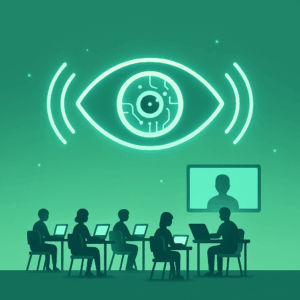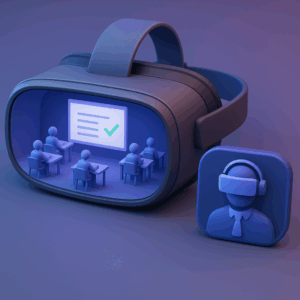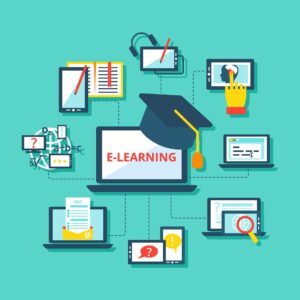AI and ML have transformed education, two technologies that have revolutionized several industries, including higher education. These technologies are changing the face of education, from more individualized instruction to increased administrative effectiveness. In the age of remote learning, AI-powered online proctoring solutions, in particular, are increasingly essential for guaranteeing accessibility and academic integrity. This article highlights their diverse roles in the field, highlighting the impact of AI and ML on online proctoring, administrative duties, and personalized learning in higher education.
Personalized Learning Experiences
One of the biggest benefits of AI and ML for higher education is the potential to develop individualized learning experiences. Addressing individual students’ varied learning requirements and speeds frequently requires assistance in traditional classroom environments. On the other hand, massive amounts of data can be analyzed by AI-powered educational technologies to determine students’ learning preferences, skills, and limitations. This data-driven method boosts student engagement and improves learning results by creating personalized learning paths that address each student’s needs.
Platforms for adaptive learning are a great illustration of this customized strategy. These platforms evaluate student performance using machine learning (ML) algorithms and make ongoing curriculum adjustments. For example, the platform might present more difficult content to students who do exceptionally well in a subject. On the other hand, if a pupil needs more assistance, the platform can offer more resources. These customized learning opportunities can greatly improve comprehension and retention, improving academic achievement.
Streamlining Administrative Tasks
AI and ML are revolutionizing higher education institutions’ administrative procedures outside the classroom. By automating repetitive processes, these technologies free up staff members to concentrate on more important and strategic work. AI-driven chatbots, for instance, can answer various questions from prospective students about course registration and application procedures. Chatbots lighten the administrative staff’s effort, improve the student experience, and respond instantly.
Furthermore, machine learning algorithms can expedite the admissions process by evaluating application data to determine the most promising applicants. This data-driven method guarantees a more impartial and fair assessment by expediting the decision-making process and assisting in removing biases. Additionally, AI can improve resource allocation by forecasting enrollment patterns, and supporting efficient budgeting and planning.
Predictive analytics is an additional effective tool, enabled by AI and ML. Through the analysis of past data, these technologies can predict graduation results, retention rates, and even student performance. By identifying at-risk students and offering timely interventions, for example, these insights enable institutions to address possible concerns proactively. Higher education institutions can operate more effectively and efficiently in the long run when AI and ML are integrated into administrative responsibilities.
Ensuring Academic Integrity with Online Proctoring
Academic integrity now faces additional issues due to the shift to online schooling. Online proctoring solutions are required since traditional in-person proctoring methods are no longer practical. In this regard, AI-powered online proctoring systems have become indispensable instruments for maintaining the validity and fairness of examinations.
Online proctoring systems use ML and AI to monitor test takers. These systems confirm that the registered student is taking the exam by using facial recognition technology to validate students’ identities. AI algorithms examine video and audio streams throughout the test to identify suspect activity, such as using illicit materials or efforts to connect with others. A thorough and reliable proctoring procedure happens when human proctors flag any irregularities for additional examination.
Additionally, proctoring systems with AI capabilities have some benefits over conventional techniques. They offer more flexibility, allowing students to maintain academic standards even when taking tests from home. Students with impairments and residents of distant places who might have trouble traveling to testing locations will benefit. These systems are perfect for schools that offer many online courses since they can grow to accommodate many students at once.
Summing up
A new era of tailored learning, efficient administration, and improved academic integrity is being ushered in by the integration of AI and ML in higher education. Adaptive learning platforms provide customized learning experiences that change how students interact with their education and produce better results. Employee attention is being diverted to strategic initiatives by administrative activities’ increasing efficiency and data-driven nature. In the meantime, issues associated with distant assessments are being addressed by AI-powered online proctoring solutions, guaranteeing the preservation of academic integrity in the digital era.
The impact of AI and ML technologies on higher education will only increase as they develop. Schools that adopt these innovations will be in better position to serve the varied requirements of their students. They can also maintain their competitiveness in a world that is becoming increasingly digital. Undoubtedly, the development of AI and ML will significantly impact higher education in the future, providing a more dynamic, open, and productive learning environment for everybody.











